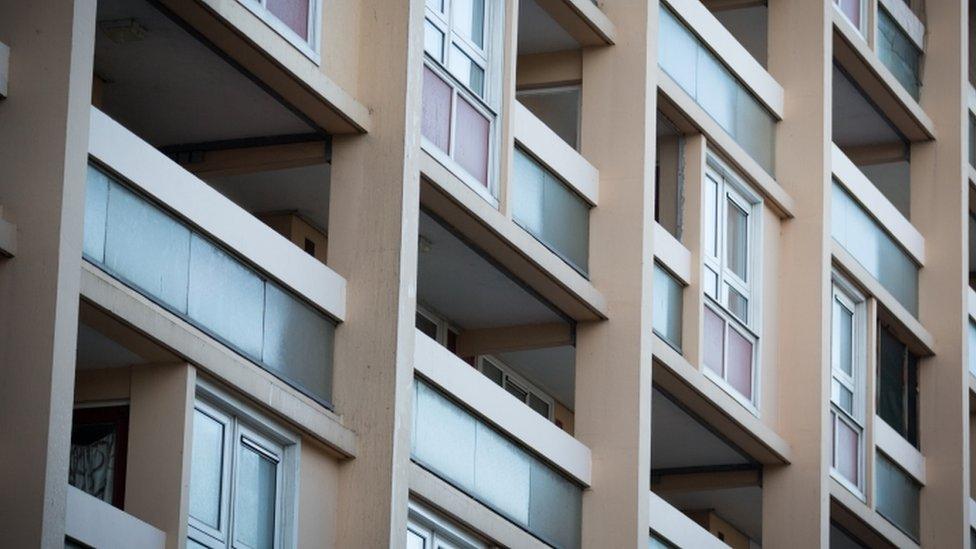Housing problems causing mental illness, says charity
- Published
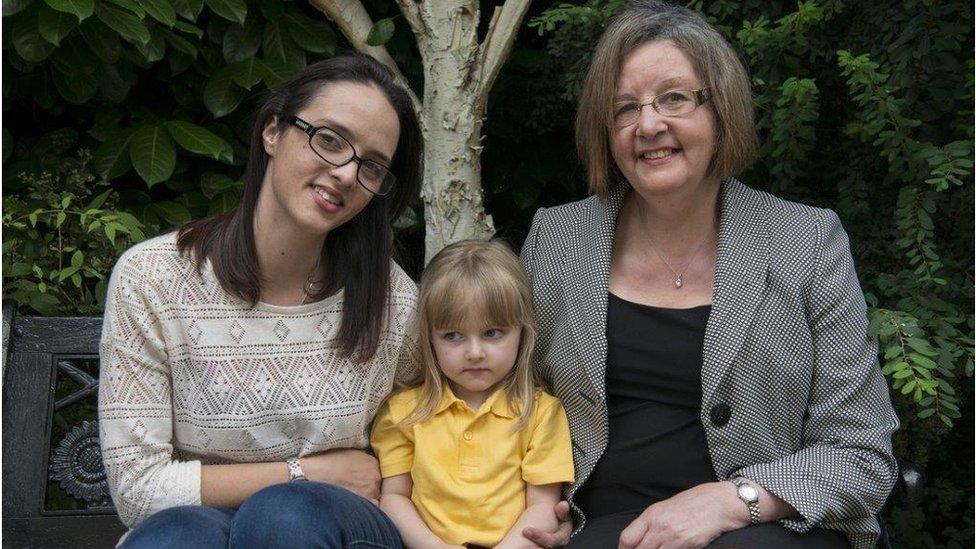
Brenda, pictured with her daughter and granddaughter, says she considered ending her life when she was faced with eviction
Housing problems in England are causing people to suffer anxiety, depression and panic attacks, says Shelter.
Of people who had experienced housing worries within the past five years, 69% said their mental health was affected, suggests research for the charity.
The researchers interviewed 1,050 people from across England who reported poor housing, rent problems or being threatened with eviction.
One grandmother, facing eviction, even considered suicide.
"It just felt like all the doors were closing in my face," said Brenda, who is from Oldham.
Her daughter, Helen, and granddaughter, Lily Mae, were living with her so she feared her whole family might become homeless.
"You blame yourself and you feel a sense of total helplessness.
"I remember not wanting to go on and wondering if I should end it."
'Breaking point'
The polling company ComRes carried out online interviews for the report in February this year with a representative sample of 3,509 adults from across England.
Of these, about 30% or 1,050 people, said they had experienced housing problems within the last five years.
Among this group the most common mental health problems were:
stress - 64%
anxiety - 60%
sleep problems - 55%
depression - 48%
panic attacks - 30%
About one in 20 had visited their GP because of their mental state and a worrying minority had contemplated suicide.
Shelter says that if these figures were replicated across the whole of England's population, one million people would have sought medical intervention because of mental health issues brought on by poor housing or worries about eviction or affording rent or mortgage payments over the past five years.
Additionally, one in six said housing worries had also affected their physical health, causing symptoms like hair loss, nausea, exhaustion, dizzy spells and headaches, while damp or mouldy homes can exacerbate respiratory conditions like asthma, says the charity.
Telephone interviews with 20 inner-city GPs highlighted the extent to which housing has an impact on mental health.
Housing difficulties can be particularly harsh for people "on the line of coping or not coping. Then, they really do tip over the edge", said one London GP.
A Sheffield GP said parents could become depressed because "they're unable to provide a nice environment for their children".
"In the children, they tend to get a little bit, sometimes withdrawn, sometimes a bit anxious and angry."
London GP Andrew Carr said housing was a major contributing factor to mental illness.
"With evictions on the rise in my area, I've seen people with acute anxiety or severe stress because they're facing the threat of losing their home."
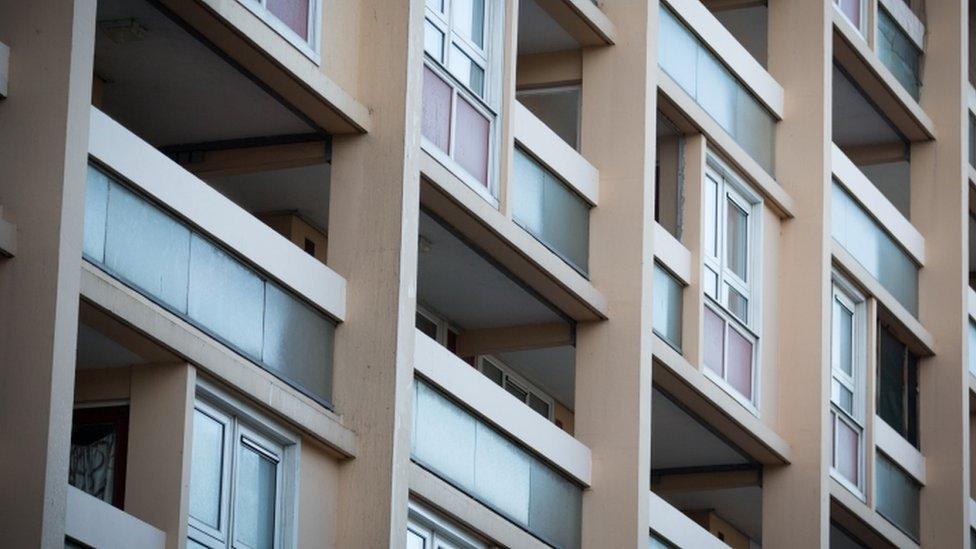
Housing difficulties are a major point of stress for adults in England, says the report
With support from Shelter, Brenda and her family eventually found stable, rented accommodation.
"It was the beginning of me taking back some control," said Brenda.
Shelter's legal adviser, Liz Clare, said people with problems like Brenda's seek help from the charity on a daily basis.
"We hear from people at breaking point because they can no longer cope with their unstable, unliveable or unaffordable housing.
"From families in fear of falling further behind on the rent to people dealing with the misery of raising young children in a tiny, mouldy, freezing flat, people can feel completely overwhelmed," said Ms Clare.
- Published2 March 2017
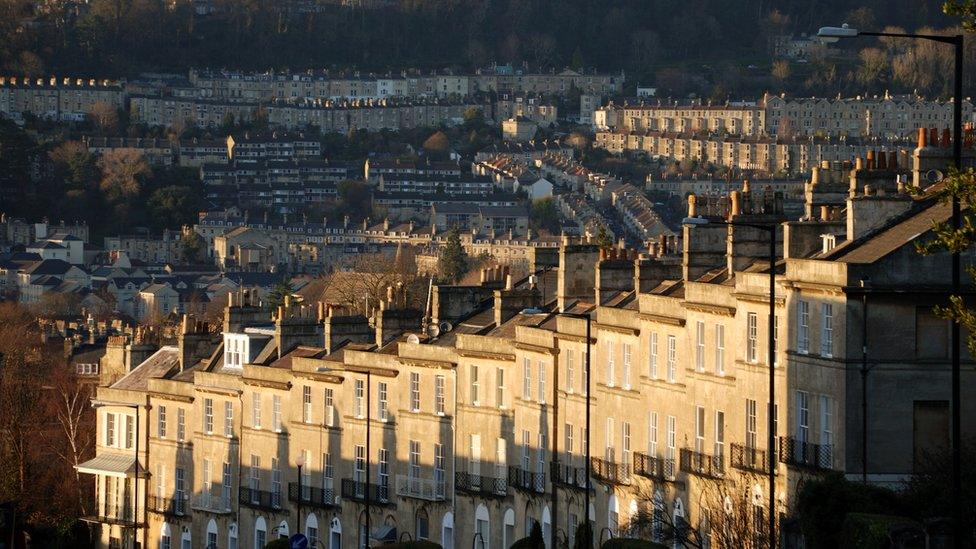
- Published1 December 2016
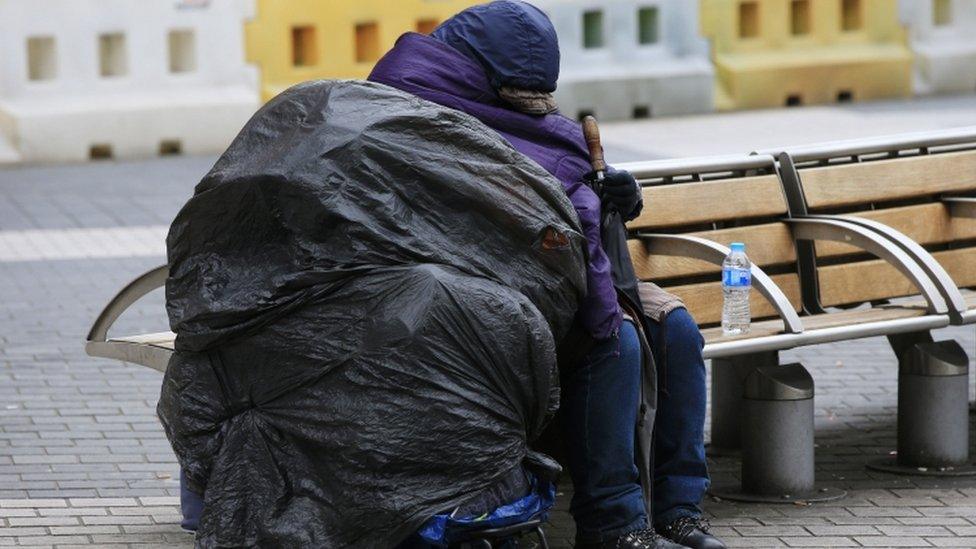
- Published11 November 2016
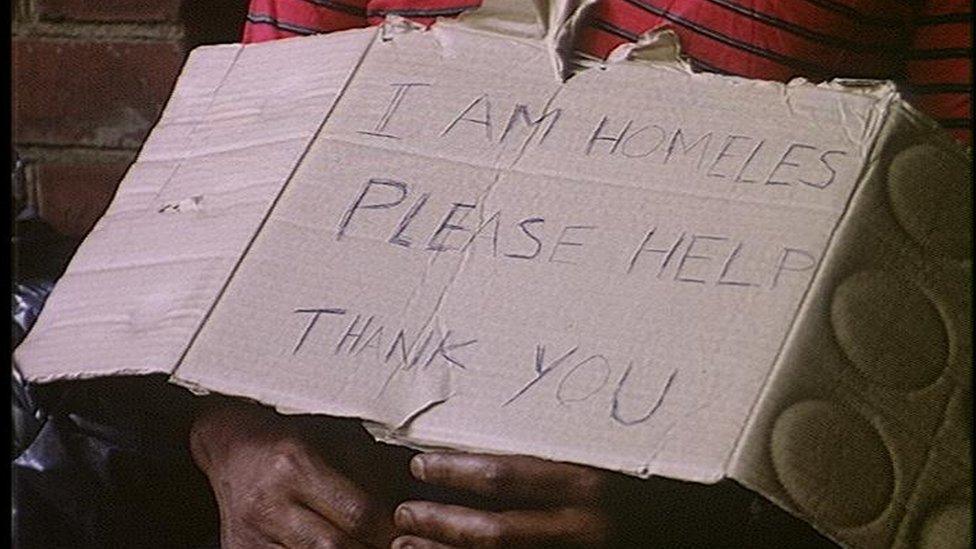
- Published22 October 2016
